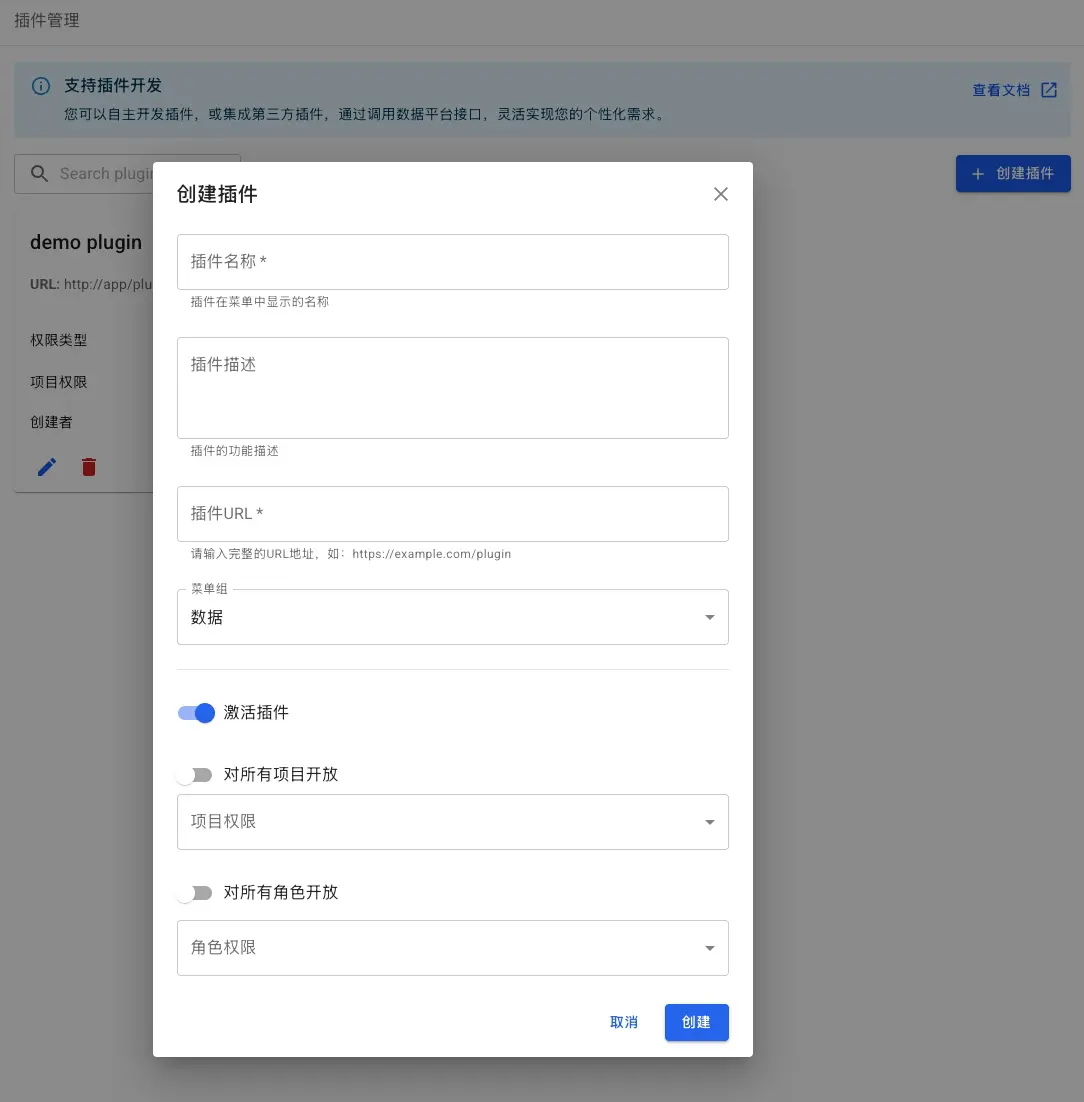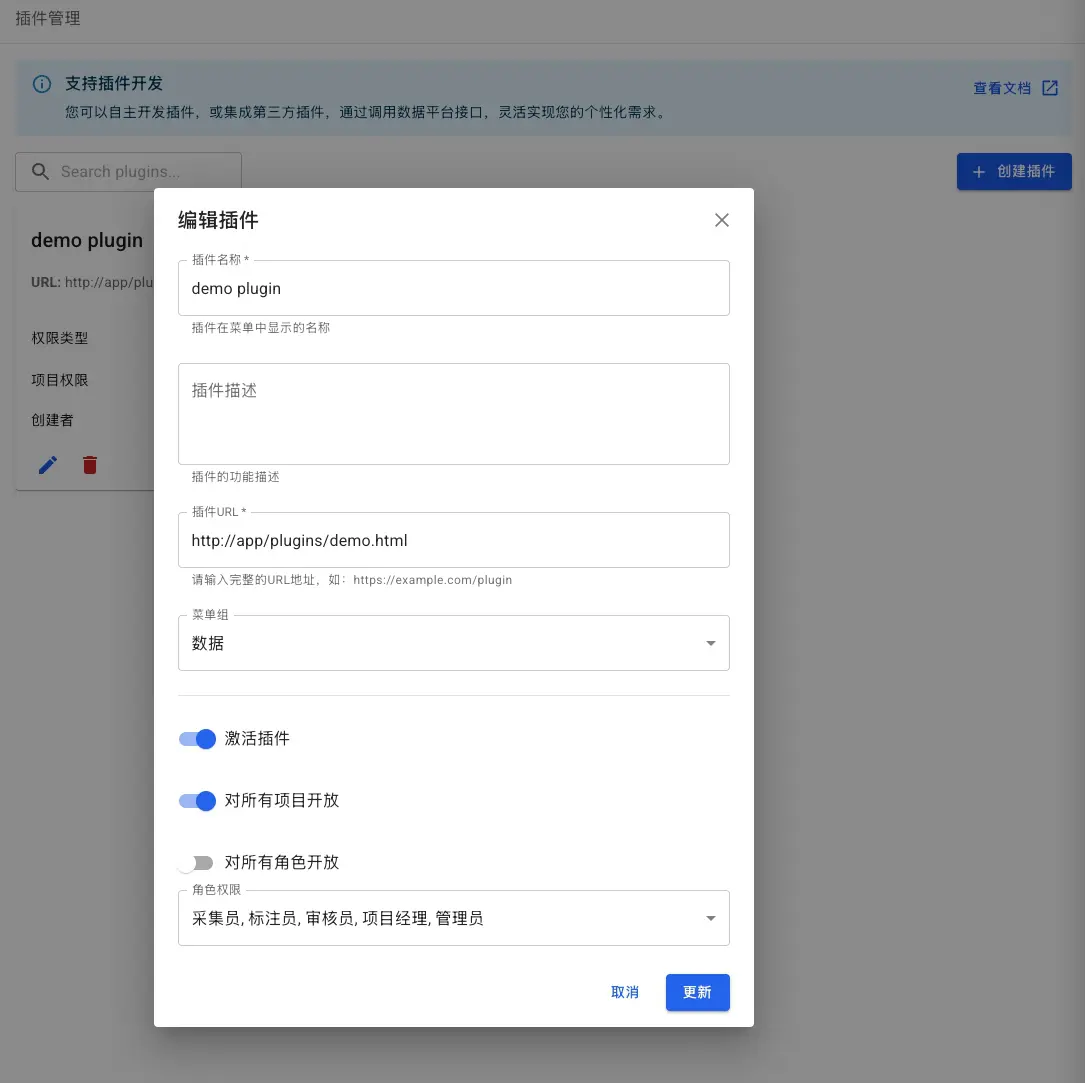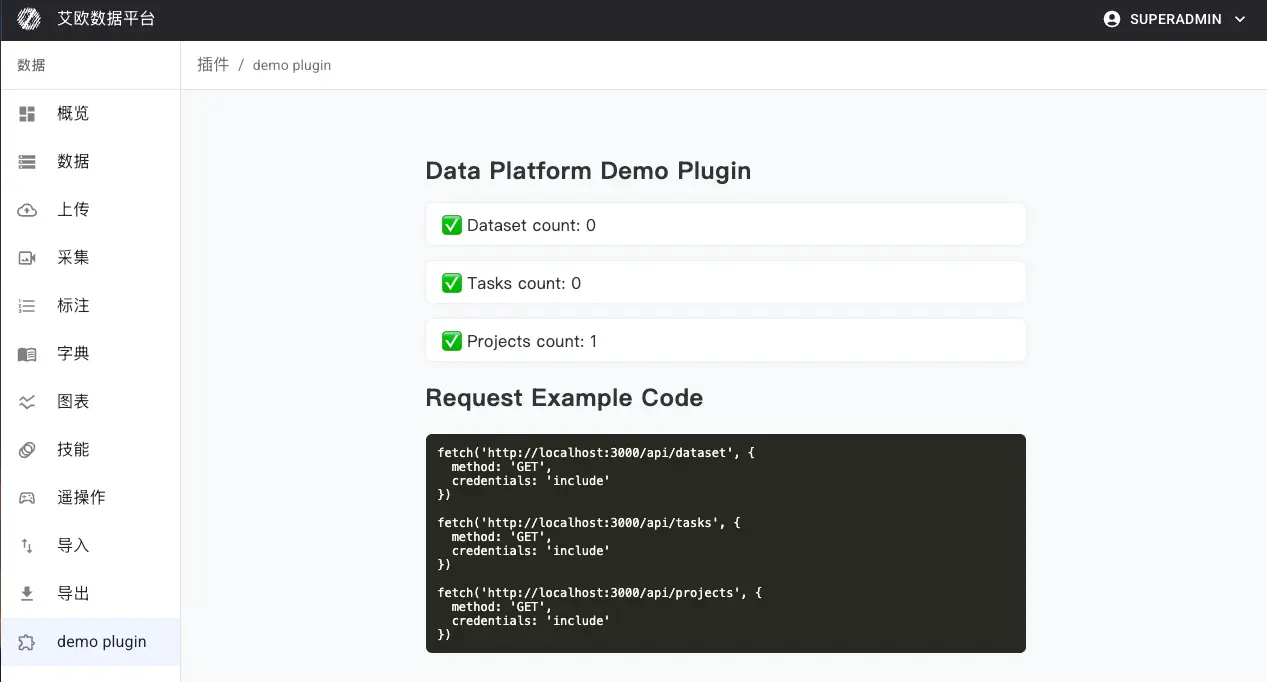Extension Plugins
The AI-O data platform supports flexible plugin extension mechanisms, allowing you to customize exclusive features according to business needs and meet personalized requirements.
Plugin Mechanism
Core Features
- Secure and Controllable: You can disable/enable plugins at any time; when disabled, plugins cannot access data interfaces
- Embedded Web Pages: Plugins run as independent web pages, embedded into the main system through iframe
- Cross-Domain Communication: Support cross-domain API calls for data interaction with the main system
- Permission Control: Fine-grained role and project permission management
- Menu Integration: Plugins can be integrated into the system menu, providing seamless user experience
Plugin Types
| Type | Purpose | Examples |
|---|---|---|
| Data Plugins | Data processing, analysis, visualization | Custom reports, data cleaning tools |
| Model Plugins | Machine learning, model training | Algorithm integration, model evaluation tools |
| Management Plugins | System management, configuration | User management, permission configuration tools |
Development Methods
Method 1: Using Built-in System Plugins
We continuously update the built-in plugin library, covering common business scenarios:
- Data Analysis Plugins: Support various statistical analysis and visualization
- Machine Learning Plugins: Integrate common algorithms and models
- System Management Plugins: Provide user, permission, and configuration management functions
Method 2: Custom Development of Personalized Plugins
Our technical team can develop exclusive plugins for you:
- Requirements Analysis: Deep understanding of your business needs
- Solution Design: Develop technical implementation plans
- Development Implementation: High-quality feature development
- Testing and Deployment: Ensure stable operation
Method 3: Self-Development
If you have a frontend technical team, you can develop plugins independently:
- Complete API Documentation: We provide detailed interface descriptions
- Development Framework: Standardized development specifications and tools
- Technical Guidance: Professional team provides technical support
API Call Examples
// Encapsulate data retrieval request
async function get(endpoint) {
const apiBase = new URLSearchParams(location.search).get("api");
const url = `${apiBase}/api/${endpoint}`;
return fetch(url, {
method: 'GET',
credentials: 'include',
})
.then(res => res.json())
}
// Encapsulate data creation request
async function post(endpoint, data) {
const apiBase = new URLSearchParams(location.search).get("api");
const url = `${apiBase}/api/${endpoint}`;
return fetch(url, {
method: 'POST',
credentials: 'include',
headers: {
"Content-Type": "application/json",
},
body: JSON.stringify(data),
})
.then(res => res.json())
}
// Get project data
const projects = await get('projects')
// Get dataset list
const dataset = await get('dataset');
// Create dataset
const dataset = await post('/api/dataset', {
name: 'mydataset_01',
// ... fields
});
The above are just simple examples. We will deliver detailed development documentation and API interface documentation to customers.
Plugin Management
Create Plugin
- Log into the system, go to "Plugin Management"
- Click "Create Plugin"
- Fill in plugin information:
- Name: Name displayed in the menu
- Description: Feature description
- URL: Plugin page address
- Menu Group: Select the group it belongs to
- Permissions: Set role and project permissions

Activate Plugin
- Click "Edit" in the plugin list
- Enable the "Activate Plugin" option
- Save settings

Use Plugin
After activation, plugins will automatically appear in the corresponding menu. Click to use.

Frequently Asked Questions
Q: What technical background is needed for plugin development?
A: Basic web development skills are required, including HTML, CSS, JavaScript. We provide detailed development documentation and technical support.
Q: Are third-party plugins secure?
A: All third-party plugins undergo security assessment and technical testing to ensure they don't affect system security. Customers are responsible for security review of self-developed plugins.
Q: How long is the plugin development cycle?
A: AI-O has a professional frontend and backend development team. For simple requirements, development can usually be completed and delivered in about 2 weeks. Complex requirements may take 1-2 months, with specific time depending on feature complexity.
Q: Is plugin upgrade supported?
A: Yes, we support plugin version management and automatic upgrades to ensure continuous feature optimization.
For more detailed information, please contact our technical support team.